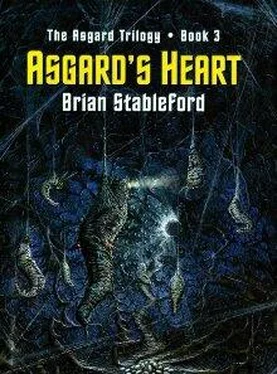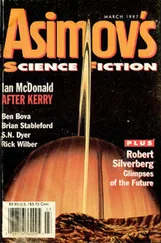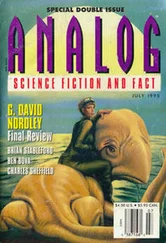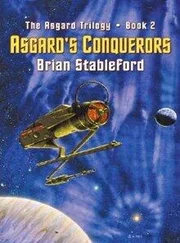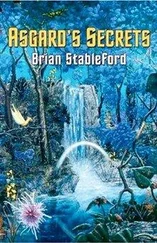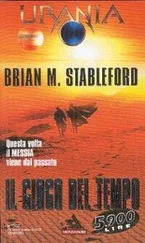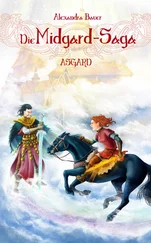She shook her head. “They need not give us time to rest or confer,” she said. “We are unlimited by the heaviness of matter and the emptiness of real space, and so are they. I have no doubt now that they are clever, and that they have established a bridge of common meanings across which they may launch their assaults. Whatever is hidden within that bank of fog will be just as anxious to destroy us as the things which we have so far faced, and it will be upon us very soon.”
I managed a small but humourless laugh, and asked: “Are we near to our destination? Can we hope that help will come?”
“I cannot tell,” she replied. “I do not know what strength we have, let alone what the enemy will use to draw it from us. We have spun the fabric of this world from the thread of your wayward dreams, Michael Rousseau, and none of us can be sure just what our present state will permit, or how it might be conclusively disrupted. They are exploring the imagery of assault, and we the imagery of defence. There is no way to know what ingenuity they have to bring to bear, or what we have within us to defy it. Do what you can, and time will tell us whether we have done enough. Remember that you may be the most powerful of us all, with assistance already given to you.”
As I turned to face the mist that waited to swallow us up, I could not help reflecting that this was poor encouragement. This might be a world concocted out of my dreams, but it was nevertheless a world where I felt myself to be a stranger. If I had ever been here before, in my waking fantasies or my deepest slumbers, I was not aware of it, and I had so far seen little evidence that my subconscious resources were uniquely fitted to the magical metaphysics of this realm. My sword might be a featherweight in my hand, my aim with the bow as unerring as my heart’s desire would have it, and my voice the forceful instrument of my will, but I was still a man in a world where forceful spirits moved which had more power than I could ever muster. Behind the appearances which we must fight to maintain were entities which had brought Asgard itself to the brink of destruction, and they did not need to understand us wholly in order to crush us as comprehensively as Myrlin’s magical hammer had crushed the rotting bone-men.
The mist closed about me, then, forcing a shiver from my body. I felt by no means tireless as the damp greyness chilled the sweat of exertion that stood upon my forehead.
For a moment, I felt our movement through the fog as though it were a wind, but then that movement slowed abruptly as the ship seemed to be gripped by a giant vise, which closed upon its hull and held it tight—and though I could not see the oars straining to pull us on, I knew that they strained in vain, and that we were caught fast. However close we might be to the mysterious shore ahead of us, we had ceased to make progress toward it.
I had an uneasy feeling that I had been dead to the world for a long time—and by “the world” I do not simply mean the world of material objects, but also the private world inside my head. Ordinarily, of course, the fact of my unconsciousness would have rendered meaningless any reference to that private world, which could not be said to exist independently of my perception of it, but my existential situation was no longer ordinary. Like 994-Tulyar, I was harbouring a mysterious stranger, which could take advantage of any loosening of the grip of my own personality to increase the measure of its own dominion within my brain and body.
Because of this curious state of affairs, I awoke from oblivion not once but twice—first into a dream which seemed not to be my own. I experienced it only as a spectator, from a perspective more remote than any I had ever experienced before, in normal dreaming or under the influence of a psychotropic drug.
The dream that I interrupted was a dream of Creation, but I cannot say when it had begun, or how long it had been going on. I was too late to witness the birth of the universe, if that had indeed been its starting-point; nor was I in time to study the intricate dance of the atoms which must have long preceded the origin of the complex organic molecules from which the first living systems were built. I do not know whether dozens or hundreds of self-replicating molecular systems had already been born and superseded, or how those systems had been propelled up the ladder of evolution by whatever chain of cause-and-consequence overruled the logic of random chance. When I invaded this dream the youngest stars of the nascent universe were long dead, and in their explosive dying had given birth to scores of heavier elements which decisively altered the context of opportunity in which the adventure of life was due to unfold. There was already a molecule in existence which was a rude ancestor of DNA, and others which joined with it in an intricate game of transferred energies.
The habitat of these molecular game-players was not to be found on the surfaces of worlds, but in vast heterogeneous clouds of gas and dust extending over distances of such magnitude that light took years to traverse them. These clouds were the wombs of new stars, and it was in the energetic haloes created by such births that the molecules of proto-life pursued their game with the greatest avidity. Elsewhere, their more ingenious transactions failed, and darkness stilled their enterprise; but the players and their game were rarely obliterated, even in the least promising regions of space; they merely waited patiently for the light of new stars to renew their efforts. With each new sun-birth, the molecules came closer to producing the phenomena of authentic life, and each sun-death would blast the spores of proto-life into distant regions of every cloud, destroying all but a few, but leaving those few to resume their unfolding story at some future time.
As aeons passed, true life—the life of DNA—was born, a by-product of the creation and destruction of the stars which was the rhythmic history of the universe itself, the fundamental alchemy of all things.
Life was not everywhere in the universe; it had come too late for that. It emerged here and there, and there again. Similar processes of chemical unfolding produced nearly identical chemistries again and again in different regions of space. Every time life emerged, it would begin to spread, its own molecules—organised now into the first primitive cells—discovering abundant food in the vast clouds ripe for their predation, and discovering in the light of suns the powerhouses which would drive the motor of their future growth and evolution.
Eventually, life discovered worlds: planets bathing in the light of suns, whose gravity-wells offered the opportunity for molecule-systems to congregate very densely, and play their games with an intimacy and an intensity of competition hitherto unthinkable. Worlds were not conquered easily, for their surfaces were very violent places, but in the clouds of gas-giants life often found a refuge, and in the oceans of water which sometimes surrounded rock-worlds life discovered the most zestful of all its games, where competition was fiercest of all and the ladder of evolution reached out to new heights of complexity and cleverness.
It seemed to be only a matter of time—albeit time measured in billions of years—before life did fill the universe, extending its seeds into every last corner where they might one day grow, so that it was potentially present in every region where a new sun might be born, ready to take advantage of whatever opportunities were opened up by the material system which formed around each coalescing star. There seemed to be nothing that could inhibit the infinite and eternal extension of the great game, whose play would become the universal project, the strategy of existence itself.
Читать дальше
